Getting the wrong person’s medication happens at the pharmacy or the hospital. The pharmacist or hospital nurse does not do their job properly and gives you medication meant for someone else.
You could fall ill after getting the wrong persons medication and through no fault of your own. You could suffer adverse drug reactions and other symptoms when you the wrong prescription medicine.
Getting the wrong person’s medication at the pharmacy or hospital is a serious form of pharmacy negligence.
The medical negligence of getting the wrong medication can have severe long-term effects on your health. Medication errors should not happen and can make you very ill.
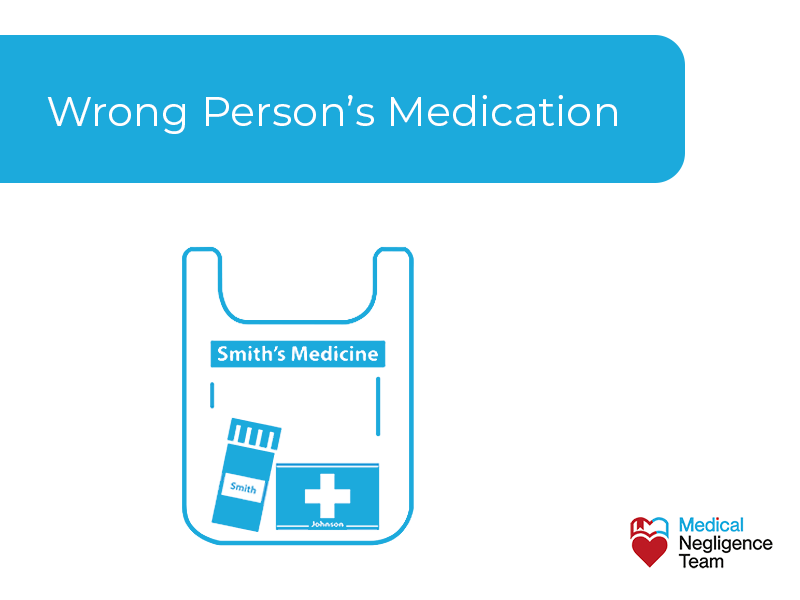
Table of content
Making a claim for receiving the wrong person’s medication
Making a claim for receiving the wrong person’s medication happens when you are given the incorrect medication at the hospital or pharmacy. The medical professional does not do their job correctly and gives you the wrong prescribed medication.
You leave the pharmacy with the wrong medicine, a medication that is for someone else, and this could be catastrophic for your health.
Receiving the wrong person’s medication is pharmacy negligence.
In the hospital, you take the medicine given to you. You do not know it is the wrong person’s medication and suffer the ill effects of taking it. The nurse could make one of the many medication administration errors such as giving you the wrong medicine cup or an incorrect dosage of your medications.
Medication errors should never happen, but they do, and you can sue for medical negligence compensation when it happens to you.
How does getting the wrong medication happen?
Getting the wrong medication happens when the pharmacist does not do their job to a professional level. Getting the wrong person’s medication is avoidable, after all most prescriptions have all your details, but it can happen when patient safety is not prioritised.
The pharmacy has procedures in place to prevent medical negligence by someone being given the incorrect medication.
Two pharmacists should check and initial every prescription, the pharmacy buddy system, and then when you are handed a bag with your medication in it they should then ask your name, address and date of birth to reconfirm you are being given the correct medication and not the wrong person’s medication.
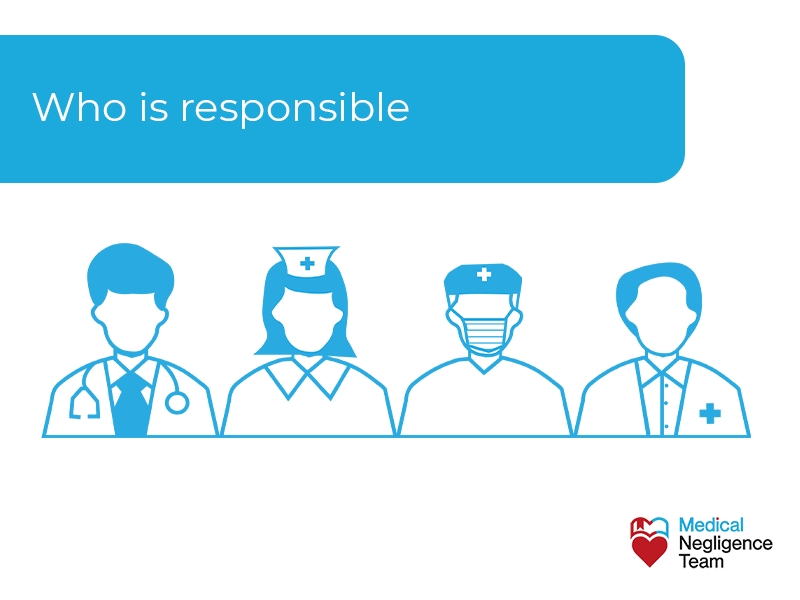
Sadly, when these checks are skipped you may get the wrong person’s medication altogether.
You then suffer an adverse drug event because you did not get your medication. You may suffer too because you are taking the wrong medication and continue to suffer as it takes time to wean off the wrong medication and then get the benefit of your correct medication.
Getting the wrong person’s medication at the pharmacy
Getting the wrong person’s medication at the pharmacy is:
Each is a form of pharmacy negligence, and you may be eligible to make a medical negligence claim for compensation.
The pharmacist giving you the wrong bag of medications
The pharmacist giving you the wrong bag of medications at the pharmacy counter does not check the name on the bag against yours, they just hand you the bag.
Wrong name on the bag means the wrong person’s medication is inside it. Without you knowing it, they have given you the wrong person’s medication.
When the pharmacist gives you the wrong bag of medication, it is pharmacy negligence.
You can make a claim for compensation when there is a medication error at the pharmacy.
A mix-up in prescriptions
A mix-up in prescriptions is when the pharmacist works on your prescription but puts the prescription for another person into your bag.
Right name on the bag but the wrong person’s medication inside it. You take the bag with your medication home, but without knowing it, you have the incorrect medications.
Instead of taking the medications as prescribed by your doctor, you are taking someone else’s, probably for a different condition.
Medication errors have serious consequences and should not happen.
By making a claim for pharmacy negligence compensation, you may prevent it from happening to someone else.
Mixing the medications in the bag of medication
Mixing the medications in the bag of medication is when the pharmacist puts part of another person’s prescription into your prescription bag.
The pharmacist, instead of paying attention and ensuring you get the correct medications, makes a medication error. If the pharmacy had safe medication practices in place they could have avoided the negligence.
The mix-up in medications means you are getting the wrong person’s medication as part of your order.
Mixing the medications in your bag of medications has serious consequences. If you take them, you could be mixing medications which should not be taken together and you could suffer adverse drug events such as an overdose.
Another form of pharmacy negligence which should never happen.
Incorrect medication
Getting the wrong person’s medication at the hospital can happen when the nurse on the rounds mixes up the medicine cups. The nurse stops to give you your medicine but gives you the cup for the patient in the next bed.
It can also happen in a hospital setting when the healthcare professional connects you to the wrong person’s medication through an intravenous drip.
The nurse takes one medication drip and connects it to your arm. By not looking correctly and cross-checking with your medical notes, they give you the wrong person’s medication.
You are taking the wrong person’s medication. Instead of getting the medication as prescribed by the doctor for your condition, you are taking a different medication or maybe a double dose of your drugs.
If you are recovering from surgery or starting a new medication regime, the medication error can have serious consequences.
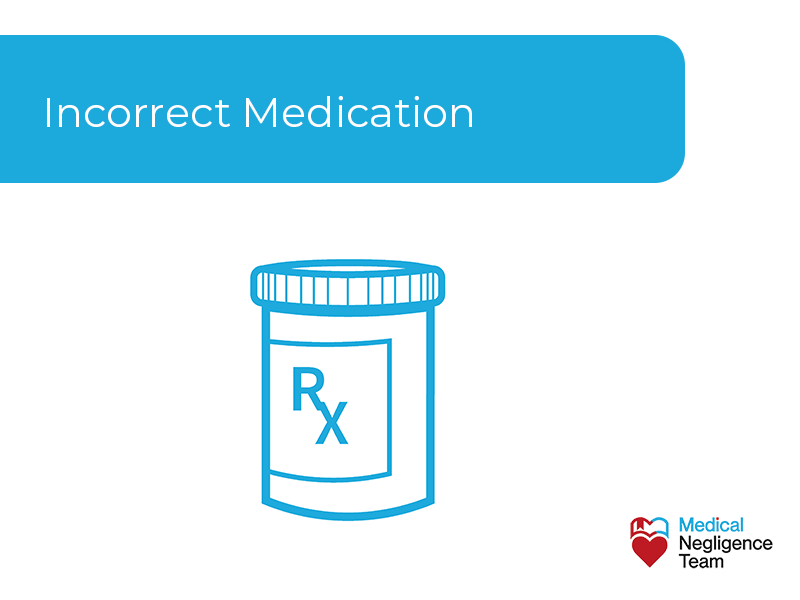
Side effects of taking the wrong medication
Getting ill from taking the wrong person’s medication is very likely. The medications are not for you; they are for someone else and taking them will have adverse effects on your health.
Healthcare research shows elderly patients can suffer badly from take an incorrect medication.
You will not know they are the wrong medication. You take them because the pharmacy or hospital gave them to you.
The pharmacist or the hospital nurse should reduce medication errors by ensuring they give you the appropriate medication.
Some of the consequences of getting the wrong person’s medication include:
Getting sick from taking the wrong medications
Getting sick from taking the wrong medications is the first sign that something is wrong. The right medication is designed to work for a patient’s medical condition, and the doctor prescribes medicine for each patient with this in mind.
Taking the incorrect dose of a medication can make you very ill and the harm caused can be as bad as taking the wrong medication.
Nausea, vomiting, diarrhea, and problems with kidney function are signs that not all is right with your medications.
Having a bad reaction to the wrong medication
Having a bad reaction to the wrong medication can happen in some cases. With high risk medications your body may react, and some horrible side effects can surface.
If your body reacts badly to the wrong person’s medications, you could come out in hives, have bad rashes and suffer a lot of severe pain.
In some cases, taking the wrong medications can cause seizures, loss of consciousness, and even falling into a coma.
Not taking your own medication
Not taking your own medication is another consequence of getting the wrong person’s medication. Your body is used to taking the prescribed medications.
When you do not get them, your body cannot fight your illness or keep symptoms under control.
Healthcare professionals should double check your electronic health records when they administer medications. Sudden withdrawal of a medication is a serious shock to your body or not taking medications, such as anti-seizure medicines, can cause more seizures.
Taking the wrong person’s medication instead of your own means not taking your own medicines, with all the effects that can have on your health.
Mixing the wrong medication
Mixing the wrong medications can have serious side effects that make you very ill. If you take the wrong person’s medications and your own, you are mixing medications.
In most cases, this is not supposed to happen; medications which are contraindicated are designed not to be taken together.
Problems can happen if the pharmacist mixes your medications with the wrong person’s medication in your bag.
You could be mixing medications for your heart that cause drug interactions with other drugs you are taking.
Symptoms of mixing the wrong medications include illness, losing consciousness and other serious side effects.
What are the steps to making a medical negligence claim?
The steps to making a medical negligence claim start at seeking medical advice and take you all the way to winning your compensation case against the negligent party.
By following these steps and listening to the advice of your medical negligence solicitor, you will win the compensation you deserve for getting the wrong person’s medication.
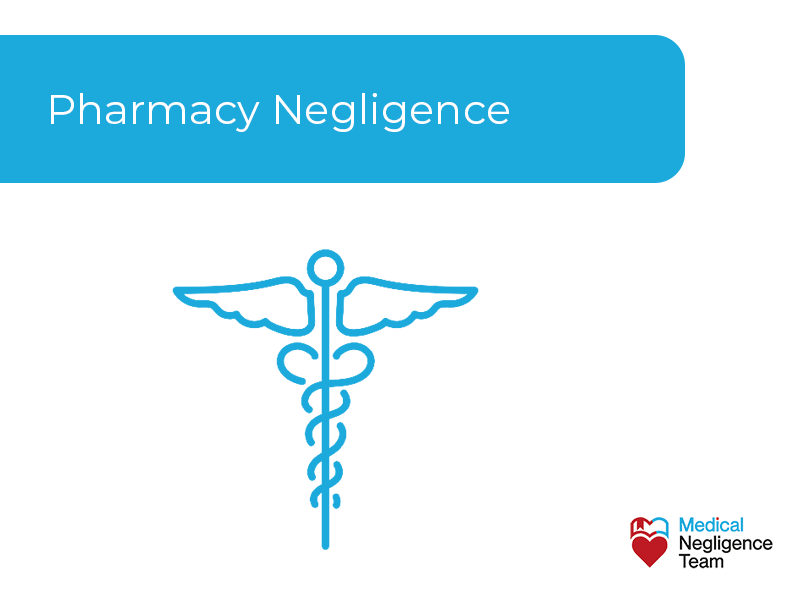
Step 1: Seek medical advice
Seek medical advice on the injuries you have suffered or are suffering with immediately you realise you experienced pharmacy negligence.
Step 2: Contact a specialist medical negligence solicitor
Contact a specialist medical negligence solicitor who operates on a No Win No Fee basis and tell them what went wrong. The right solicitor will look at your case, see where the problem lies, and advise if you suffered pharmacy negligence.
The Medical Negligence Team also has a 100% Compensation Guarantee scheme, where you get all the money awarded in a negligence claim.
You are the one who suffered medical negligence, and you should get all the money due for the suffering.
Step 3: Your medical negligence solicitor obtains your medical records
Your medical negligence solicitor obtains your medical records with your permission. By reading your records, they will confirm if they think you have a valid medical negligence case.
The medical negligence team will know from reading your medical records if the case will result in pharmacy negligence compensation being paid.
Step 4: The medical negligence solicitor sending a letter of claim to the negligent party
The medical negligence solicitor sending a letter of claim to the negligent party is the next step. The letter will ask them to admit pharmacy negligence in what is known as ‘sending a letter of claim.’
When the negligent party receives the letter of claim, it has up to four months to provide a written response.
Step 5: Getting a response from the negligent party’s insurer
Getting a response from the negligent party’s insurer will move your compensation claim closer to a conclusion.
The insurer will either admit the medical negligence or say they intend to defend the case. Deciding to defend the case is known as ‘deny liability’ in legal terms.
If they admit liability, your pharmacy negligence claim can be valued.
The two parties will meet to decide on your pharmacy negligence compensation payment.
Your solicitor will negotiate with the negligent party and use their experience to get the compensation you deserve.
Step 6: Issuing court proceedings
Issuing court proceedings is the next step if they deny liability in your pharmacy negligence case. Going to court happens, too, when they are not prepared to pay a fair amount for the injuries you have suffered.
Your medical negligence solicitor issues the court proceedings.
Remember that less than 1% of medical negligence cases go to trial.
Our Process
Our team members have a higher career win rate with a 75% success rate on NHS letters of claim, compared to an industry average of 54.5%.
Enquiry
The first step is to get in touch and tell us what went wrong. It’s free and easy. Call our 24-hour helpline: 0800 246 1122 or request a callback here.
Medical Evaluation
Once you have spoken with our team we’ll let you know how we can help. Typically the next step is to obtain your medical records for us to review.
Legal Letter
Once all your medical records have been received they will be reviewed by a medically & legally qualified member of our team. If there is evidence of negligence we will send a letter of claim to the negligent party outlining your compensation claim.
Using a No Win No Fee solicitor
Using a No Win No Fee solicitor is the only way to a successful pharmacy negligence claim. Your No Win No Fee medical negligence solicitor will not charge you for a claim you do not win.
If they start talking of a ‘win fee’ or a ‘success fee,’ you should walk away. The negligent party insurers should pay all fees.
The medical negligence solicitor should also operate a 100% Compensation Guarantee scheme. When you win the case, all the money awarded should go to you, not the solicitor.
You are the one who suffered pharmacy negligence, and you deserve the compensation to get your life back to normal.
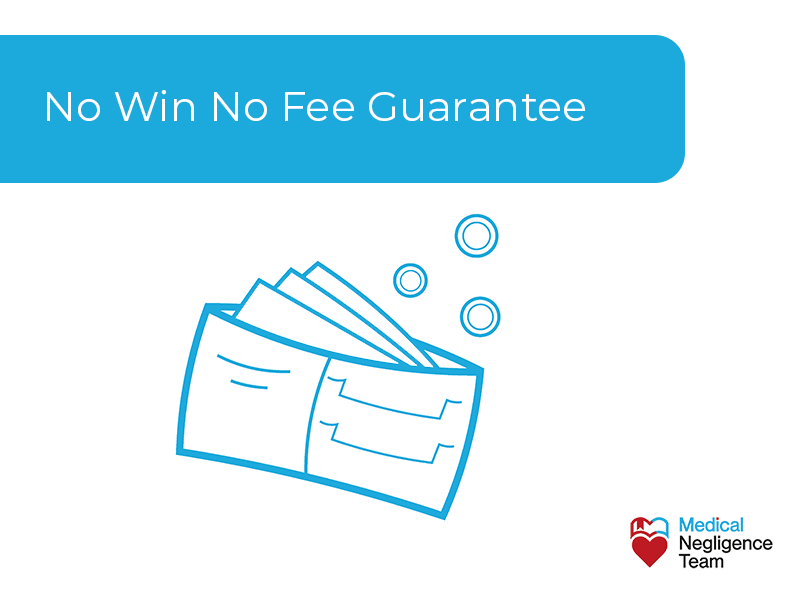
How long do I have to make a claim for pharmacy negligence?
You have three years to make a claim for pharmacy negligence. All medical negligence claims are subject to limitation periods.
For example, in England and Wales, medical negligence claims must generally be brought, court proceedings issued within three years of the injury, or three years of knowledge of the facts giving rise to the claim.
If someone has passed away, the three years would start from the date of death if the limitation period has not already expired at the date of death.
Children not under a disability typically have until they reach 21 to start a surgical negligence claim or court proceedings.
Persons under a disability, who lack capacity, are not subject to any limitation period.
Contact us
Contact us at the Medical Negligence Team if you need to sue for pharmacy negligence. People claim compensation when they get the wrong person’s medication at the hospital or pharmacy.
Always use a No Win No Fee medical negligence solicitor. At the Medical Negligence Team, we operate a 100% Compensation Guarantee, along with the No Win No Fee policy, so you will get every penny of the money awarded.
We are very successful at what we do so you will receive all the compensation money very quickly.
Contact the Medical Negligence Team today for all your medical negligence needs.


